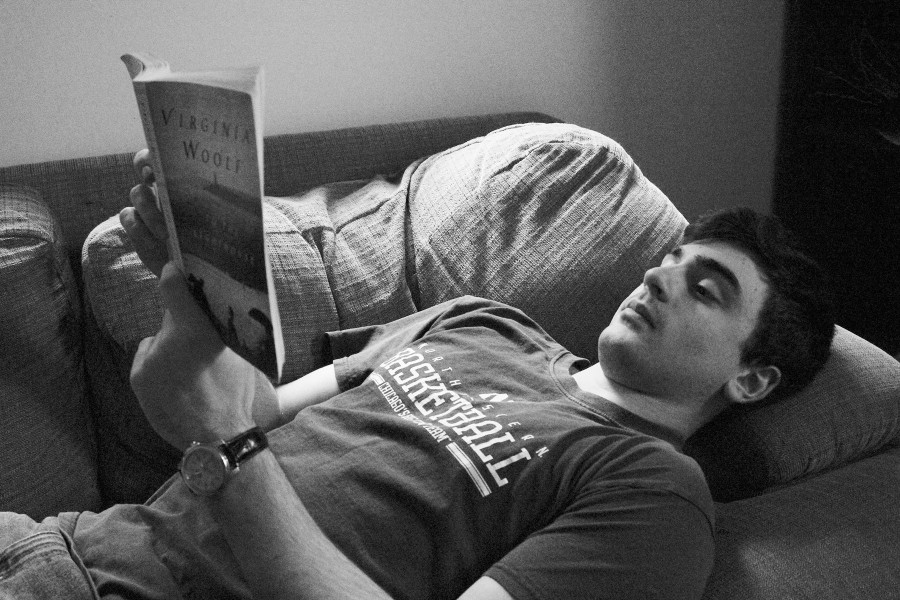Screens prevent restful sleep

On an ordinary school night, as soon as senior Kiley Sullivan finishes her homework and gets ready to go to sleep, she opens Netflix on her computer.
“A lot of times, I need to watch Netflix before I go to bed,” said Sullivan. “Like, if I’m not that tired, I’ll watch an episode of Netflix or go on my phone and then it’ll help me fall asleep.”
According to Anne-Marie Chang, assistant professor of biobehavioral health at Pennsylvania State University, though viewing screens before bed for some people may be relaxing and may help them fall asleep, in general, studies have shown that watching screens before bed can have both negative short-term and long-term effects on sleep.
“Short-term effects include … a delay in the body’s circadian clock and less rapid-eye movement sleep,” said Chang. “Long-term effects can include greater sleepiness the following morning or day after having viewed screens.”
Senior Ben Hunt said he reads paper books two or three nights during the week before bed.
“I definitely fall asleep easier when I’m not looking at anything screen-related before bed,” Hunt said.
According to Chang, one of the main reasons high school students do not get enough sleep is because they use technology before bed too often.
“Evidence shows that as the use of technology before bedtime increases among high school students, as well as among younger children and adolescents, sleep duration is shorter and sleep quality is poorer,” said Chang. “Even if students are simply doing homework on the computer, such as writing an essay, the bright light from the computer can still have a negative effect on their sleep and circadian rhythms.”
Sullivan said she thinks almost all students look at screens before they go to bed.
“I think some people might lose sleep because they look at screens before bed,” said Sullivan. “Like people who can’t fall asleep usually just stay up looking at their phones or going on their computers.”
According to Hunt, those who view screens on a daily basis before bed may be unaware of the harm screen-related activities bring.
“There are probably very few people who still read before bed, and I think it’s important that students, especially those who have trouble falling asleep, know that it may be because they’re looking at screens,” Hunt said.
Chang said that for at least one or two hours before bed, any activities that students may find relaxing while still being “unplugged” is a good alternative to looking at screens.
“I would recommend reading an old-fashioned print book, listening to music, even if the music is on your phone, taking a bath or shower, or doing yoga or meditation,” Chang said.

